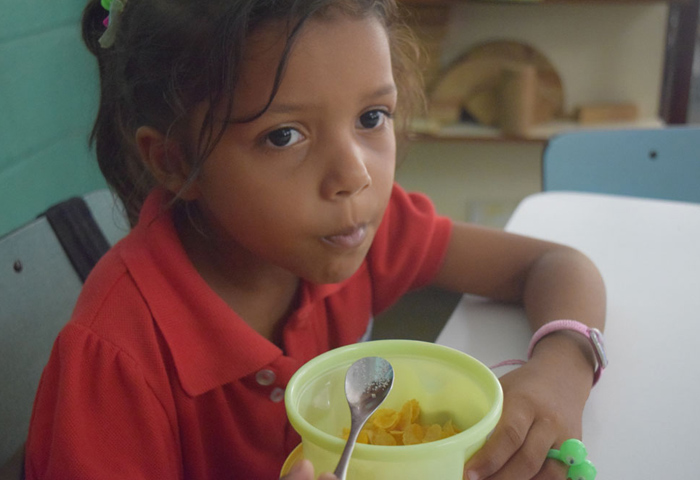
A student eats cereal at the Santo Angel School. As the country's economic crisis has deepened, some families can't afford basic foods like cereal. (Cody Weddle)
At the Santo Angel School, an hour outside of the Venezuelan capital of Caracas, one might struggle to realize that the country continues to suffer through one of the worst economic crises in its history. At recess, the kids, ranging from ages 4 to 15, play and scream, oblivious to the difficulties so often mentioned by the adults around them.
But because the school is located in a low-income area most affected by the country's economic downturn, the effects of those difficulties have started to show for dozens of the school's 425 students. According the school's social worker, Sr. Blanca Griselis, a member of the Hermanas del Ángel de la Guarda, 35 students now regularly come to school with little or no food. The school asks parents to send students with a breakfast, and they leave school at 11:45 a.m., just before lunch.
A recent study by the Venezuelan chapter of Caritas Internationalis showed child nutrition rates approaching crisis levels in communities like Ocumare del Tuy.
As Griselis continued to notice more children without food and growing thinner, she set out to find a temporary fix to the problem. By securing a donation from a sister congregation in Spain, those students without food now receive their own arepa, a traditional Venezuela corncake.
Global Sisters Report sat down with Griselis at the school to discuss her life as a sister and her effort to keeping students fed and in class.




